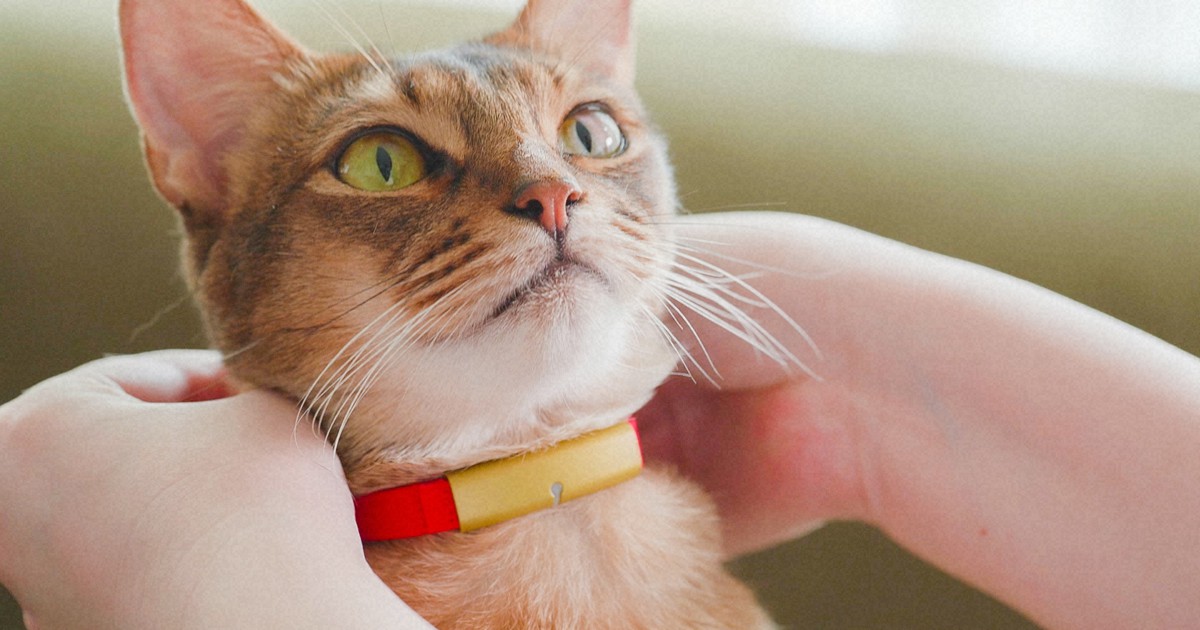- September 3, 2022
- No Comment
- 5 minutes read
Japan firms' tech gives owners insight into pets' emotions, health – The Mainichi – The Mainichi

Please view the main text area of the page by skipping the main menu.
The page may not be displayed properly if the JavaScript is deactivated on your browser. Japan’s National Daily Since 1922
Japan’s National Daily Since 1922
August 14, 2022 (Mainichi Japan)
Japanese version
TOKYO — Pet tech, which enhances the quality of care for cats, dogs, and our other beloved animal companions, is drawing attention in Japan, as venture firms have been developing cutting-edge devices to read animals’ emotions and grasp the state of their health.
Tokyo-based sanitary products giant Unicharm Corp. announced in April it would form a capital and business alliance with information tech startup Rabo Inc., also in Tokyo. Unicharm is the largest pet goods maker in Japan by market share. President Takahisa Takahara commented, “(The collaboration) will help push digital transformation of the pet care sector forward. We’d also like to contribute to the expansion of Rabo’s businesses.”
Rabo was founded in 2018 by 41-year-old Yukiko Iyo, who studied animal ecology at the Tokyo University of Marine Science and Technology’s graduate school. In 2019, the company launched “Catlog,” a wearable device that allows owners to track their cat’s movements in real time on their smartphones through a collar-mounted data logger. It visualizes the feline’s health status by collecting data on seven types of activities, including running, eating, and sleeping.
In August 2021, Rabo also launched “Catlog Board,” which is put under cats’ litter boxes to record the number of times they use it, and in what amounts. Rabo ran a Catlog Board campaign in collaboration with Unicharm’s “Deo Toilet” double-layer litter box in November last year, which led to the recent capital and business alliance. Unicharm’s Takeshi Ikegami, a 46-year-old senior manager who was involved in developing Deo Toilet, told the Mainichi Shimbun, “We’d also like to make use of the technology to develop new products regarding food and health checks.”
Rabo for the first time had a booth at January’s Consumer Electronics Show, one of the world’s largest consumer technology trade fairs held annually in Las Vegas. There, the firm says it was approached by local IT firm. It secured funding of 1.32 billion yen (nearly $10 million) after a third-party stock deal in which Rabo shares were allocated to Unicharm and five venture companies.
“There are around 600 million cats living with human beings in the world. We’d like to expand our products globally by making the app available in many languages and through other means, so that cats around the world can live healthily,” Iyo said.
Tokyo-based Langualess Co. released its “inupathy” product in 2017. It, too, is wearable, and analyzes dogs’ heart rate to indicate five emotions, including happiness and nervousness, by color. Dogs’ heart rates can be accurately measured even when the device is attached over the fur, thanks to a special microphone and digital technology. The algorithm that instantaneously analyzes dogs’ emotions from electrocardiogram waves is the world’s first such technology to be patented.
Langualess President Kana Yamairibata, 37, emphasized, “Since people can’t converse with pets, it was difficult for them to be respected, even though they all have different personalities. Understanding their emotions itself is fun, and the accumulation of data contributes to health care.”
According to estimates released in 2019 by Yano Research Institute Ltd., Japan’s domestic pet tech market, which stood at 230 million yen (about $1.7 million) in fiscal 2017, grew to 740 million yen ($5.6 million) in just one year. After a revised animal welfare law entered force in June this year, making it mandatory for pet owners to implant microchips in dogs and cats, the market size is estimated to grow to 5.03 billion yen (about $38 million) by fiscal 2023.
Regarding pet tech trends, Yamairibata commented, “In the U.S., pet dogs are usually large, as are home gardens, and the emphasis is on allowing them to lead reasonable, free lives as dogs with the power of IT. In Japan, in many cases people keep small pets indoors, and due to COVID-19 as well, they prioritize technology that values pets as family. However, we are in the dawn age of this technology, and it is a ‘blue ocean’ that still has much room to grow.”
(Japanese original by Yuichi Nishigori, Regional News Department)
More Articles 
Copyright THE MAINICHI NEWSPAPERS. All rights reserved.

